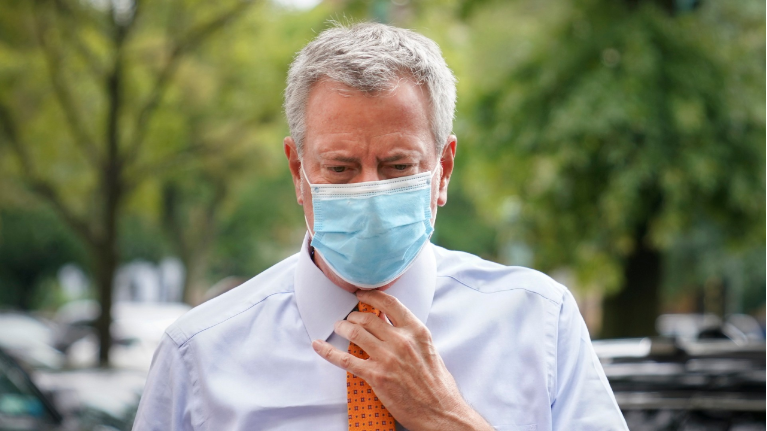A crisis of communication and failed messaging has led to a community feeling targeted by city leaders, according to some in the Orthodox Jewish community.
Protests broke out in Borough Park Tuesday night, hours after hours after both Governor Andrew Cuomo and Mayor Bill de Blasio announced new restrictions — including a limit on religious gatherings — for parts of Brooklyn and Queens, which have steadily reported new cases of the coronavirus.
"We all have to work together. We are all in this together," de Blasio said Wednesday during his daily press briefing from City Hall.
But community leaders said the opposite has happened.
Rabbi Motti Seligson, a spokesperson for the Chabad Movement, said there has been an erosion of trust between the community and the city's public health and government officials.
"Public health officials could be effective with information if they were trusted. The issue is that, in some cases, people feel there is hypocrisy in terms of what is safe and what isn't," Seligson said. "It's pitting communities against each other."
Community leaders said low infection numbers led to some complacency in the Orthodox community, but it was worsened by a lack of guidance coming from public health officials. It was during that critical time just before the holidays the city should have stepped up enforcement and prepared for an uptick in cases.
Menashe Shapiro, a political strategist who is familiar with the different Orthodox communities, said the city missed a critical opportunity to prepare.
"The city was beginning to see the early signs of this relaxing back in August and were not going into the communities to try to stem the tide," Shapiro said.
City Hall officials said more than 5,000 businesses in the cluster zone have been inspected since the end of September, but only 68 summonses have been given out.
"The mayor gives extra deference to the political interests of members of the political base that got him to where he is," Shapiro said. "Where that becomes a problem is in this area of mass public health crisis."
For now, both the mayor and the governor are failing to get buy-in from leaders in communities they claim close connections to, so local officials are filling the void and at times making matters worse.
Assemblyman Simcha Echestein suggested the failed communication will lead to communities openly defying orders to not gather in large numbers, specifically when it comes to religious practice.
"They're on the record saying that aggressive enforcement doesn’t work in every other scenario, so that won’t work. What are you going to send cops into synagogues? Okay, bring it on," Echestein said.



